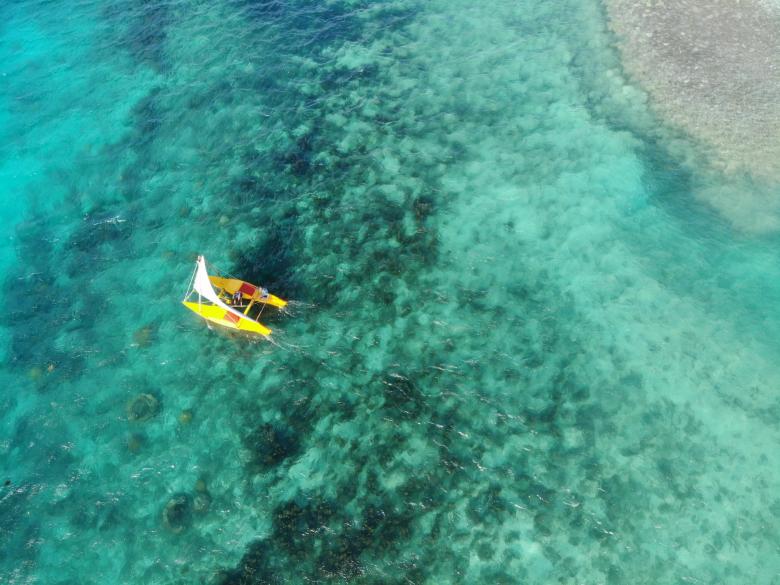
Transitioning to Low Carbon Sea Transport in the Marshall Islands
The Republic of the Marshall Islands (RMI) relies on maritime transport for economic activity, connectivity and resilience. Connectivity, especially for the remote islands and atolls, is vital for access to services and socioeconomic opportunities for citizens. Sea transport ensures the delivery of education, health care and economic development, and plays a role in responding to climate change impacts.
RMI is almost entirely dependent on imported fossil fuels, the costs are high and a heavy burden on national and household budgets. Shifting to renewable energy sources helps reducing this burden and supports inclusive and sustainable economic growth.
RMI is a world leader in advocating for action on climate change and the only country to explicitly include domestic sea transport in its Nationally Determined Contributions (NDCs). The country set the goal to reduce GHG emissions from domestic shipping by 40 per cent by 2030. Full decarbonisation is to be achieved by 2050.

